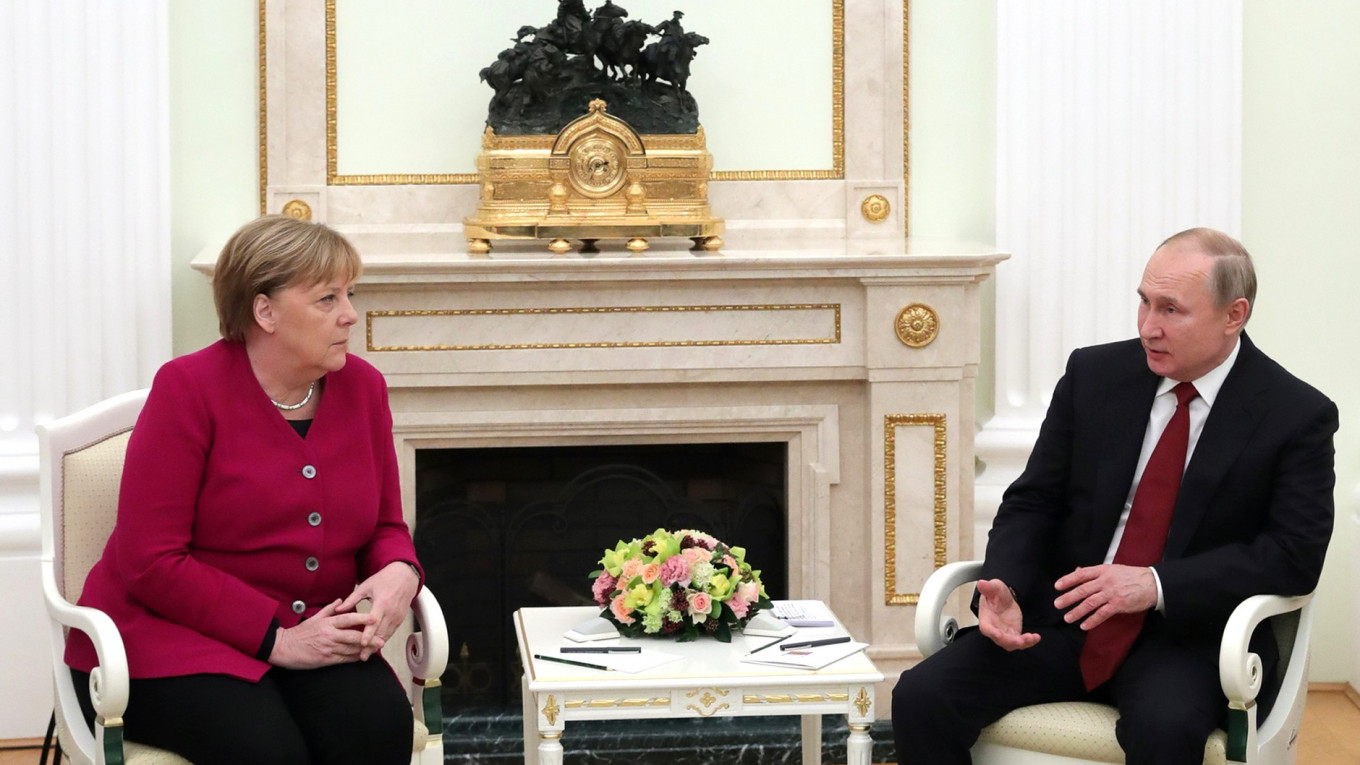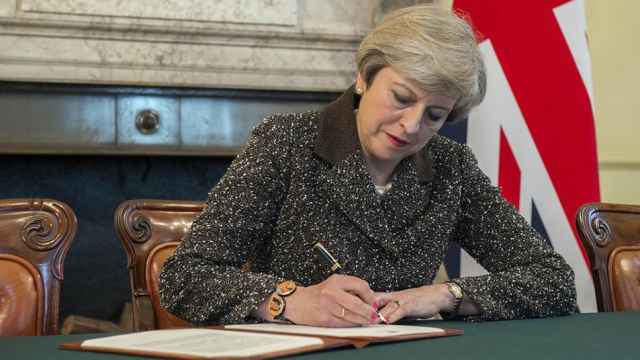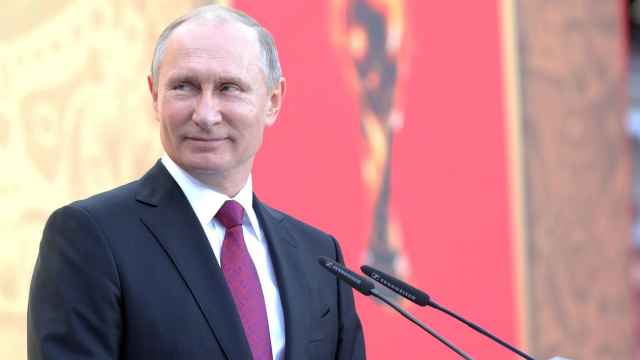Russian President Vladimir Putin and German Chancellor Angela Merkel discussed the poisoning of Russia’s main opposition figure Alexei Navalny in a phone conversation Monday, a German cabinet representative told the state-run TASS news agency.
Navalny has recovered in Berlin after being poisoned with what Western governments say was the deadly Soviet-era nerve agent Novichok in August. The incident added another dent to an already tense relationship between Putin and Merkel, who share a long and complicated history, and led to EU sanctions on Russian officials.
The Kremlin’s readout of the call omits any mention of Navalny, only saying that the two leaders spoke on other "topical issues of the bilateral agenda."
The two leaders also discussed the situation in Nagorno-Karabakh, the eastern Ukraine peace process and coordination on coronavirus vaccines, the Kremlin said.
Merkel and French President Emmanuel Macron have both called on Russia to provide answers after Germany said lab tests provided "unequivocal" proof that Navalny was poisoned with Novichok before he fell violently ill on a flight in Siberia. Berlin’s findings were confirmed by labs in France, Sweden and the Organization for the Prohibition of Chemical Weapons (OPCW).
Moscow maintains that Navalny was not poisoned and has refused to open a criminal investigation, complaining that Germany hasn't shared its findings and that Navalny’s aides took potential evidence out of the country.
A Message from The Moscow Times:
Dear readers,
We are facing unprecedented challenges. Russia's Prosecutor General's Office has designated The Moscow Times as an "undesirable" organization, criminalizing our work and putting our staff at risk of prosecution. This follows our earlier unjust labeling as a "foreign agent."
These actions are direct attempts to silence independent journalism in Russia. The authorities claim our work "discredits the decisions of the Russian leadership." We see things differently: we strive to provide accurate, unbiased reporting on Russia.
We, the journalists of The Moscow Times, refuse to be silenced. But to continue our work, we need your help.
Your support, no matter how small, makes a world of difference. If you can, please support us monthly starting from just $2. It's quick to set up, and every contribution makes a significant impact.
By supporting The Moscow Times, you're defending open, independent journalism in the face of repression. Thank you for standing with us.
Remind me later.






